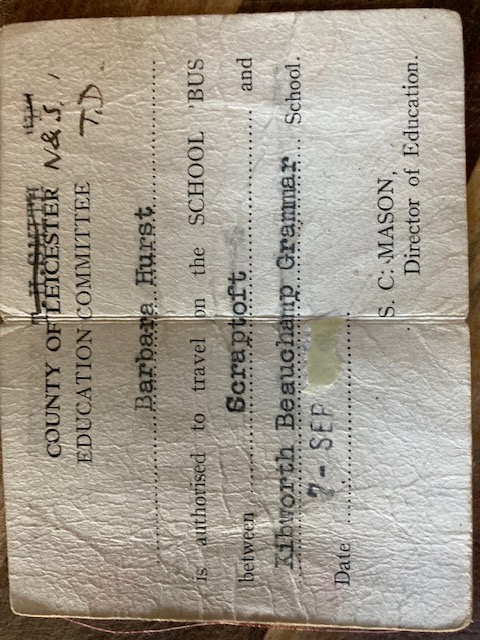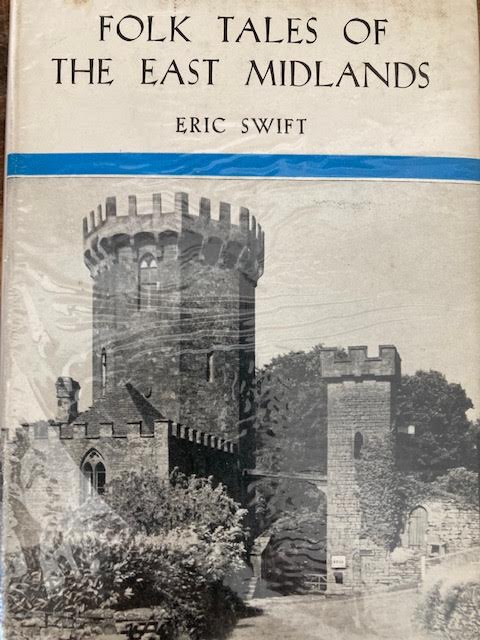The ridges and furrows of school years at Kibworth Grammar School
The Grammar School was a sharp contrast to my private school education up to the age of eleven. The Headmaster, for most of my time there, was Mr Daw. Shortly after arriving at Kibworth, my father presented me with a limerick he had written to mark the occasion:
There was a young girl called Barbara
Who went to a school near Harborough.
The Headmaster was Daw,
He laid down the law,
And very soon sent her to Narborough.
Probably not the most supportive gesture at the time! But I was eager to get started, delighted and scared in equal terms. Pupils came from a huge area. At the beginning and the end of each day School Lane was buzzing with buses from a wide range of Leicestershire companies. When the bus was full, you just sat on someone’s knee! There was no other way home. If I stayed late at school, the nearest bus to Scraptoft travelled down the A6 to Leicester – so I left the bus at Oadby and walked to Scraptoft. It never felt strange, but I must admit I was terrified of the darkest sections on the route.

Rivalry between schools was common then. Pupils at Kibworth were said to go to ‘Kibby Cow Sheds’, whilst pupils at Wigston’s Guthlaxton School were known as the ‘Purple Horrors’ (a reference to the colour of their blazers).

The teachers were a very mixed bunch – some had been dedicated teachers for a long time, some leaned more to study and writing, and would have been happier in a University environment. I think they were picked for their academic achievements, but some suffered, never quite managing the discipline necessary to control a class. English teacher Eric Swift was a case in point. A learned, kind and gentle man, and a poet and author of distinction, he seemed never to quite fit into the school community. His many books, beautifully crafted and put together, are still available on the Internet.
Art teacher Miss Miles and Music teacher Mr Dwyer were examples of inspiring teachers – in a school in which the rest of the syllabus was more important. Latin, of course, was the norm for pupils in the top streams.
Terry Dwyer was tireless in his encouragement. A talented composer, he wrote music for an open-air play, Lady Precious Stream, which went on tour to some wonderful Leicestershire settings in the days when school trips were rare. His wide interests included harpsichord-making and electronic music, and his compositions ranged from solo songs and chamber music to opera and symphony. I had the pleasure, as a choir member, of singing in a school performance of Benjamin Britten’s Hugh the Drover – ideally suited to the high trebles amongst us.
All pupils became members of one of four School Houses. As a Spartan, this undoubtedly gave me the strength to endure hockey played on an unashamedly ridge and furrow field, a good trek away over the railway bridge from school. Often cold and wet, we trudged back to the primitive and freezing school changing rooms, which could be located by the smell alone. The verandah doors leading to the changing rooms opened to the chilling winds from the north.
My parents denied me entry into the Sixth Form, so I never got to inhabit the sacred spaces reserved for that fortunate group. I share with you here only a few of many memories, amazingly squeezed into only five years of learning at Kibworth.
Barbara Johnson
Chairman, Harborough District Council




 Kibworth Bowls Club – Sept 2023
Kibworth Bowls Club – Sept 2023

